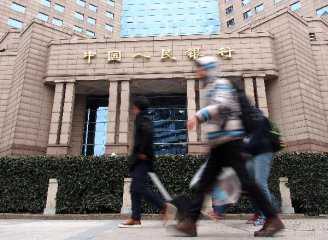"Since the beginning of the year, the People's Bank of China has cut the reserve requirement ratio three times to lower the cost of funds for the banks. The market-based interest rate reform has advanced further," Yi said in a statement to a meeting of the International Monetary and Financial Committee (IMFC) during the annual meetings of the International Monetary Fund (IMF) and the World Bank.
"These policy measures have achieved desired results. Growth of the money supply and credit has been stable, and market interest rates have remained at low levels," he said.
While attention will be given to "maintaining a stabilized leverage ratio", counter-cyclical measures will be taken to "align the growth of M2 and total social financing with that of nominal GDP", said the central bank governor.
"The transmission mechanism for monetary policy will be further improved to reduce firms' funding cost and to promote high-quality economic growth," he said.
China has maintained a stable growth in 2019, with main economic indicators kept within an appropriate range, despite facing significant external headwinds from trade protectionism in some major economies, according to Yi.
The central bank governor also stressed that the Chinese government "attaches great importance" to preventing and mitigating major financial risks.
"Since the beginning of this year, the authorities have introduced a series of market-based and rules-oriented measures to address the risks of some small- and medium-sized banks," he said.
The authorities have also taken a number of targeted measures to improve its liquidity management tools, Yi noted.
"The aim is to restore confidence in the interbank markets, mitigate liquidity risks of small and medium banks, prevent moral hazard, and ensure market stability," he said.




















Latest comments